Edward Roscoe Murrow was born on April 25, 1908, in Guilford County, North Carolina.
Murrow spent the first few years of his life on the family farm without electricity or plumbing. When he was six years old, the family moved to Skagit County, Washington. In high school, Murrow was elected president of the student body and was a member of the debate team.
Murrow went on to attend Washington State College where he majored in speech. He grew increasingly interested in national and world affairs and was made president of the National Student Federation of America. After graduating, he moved to New York and was made assistant director of the Institute of International Education and assistant secretary of the Emergency Committee in Aid of Displaced Foreign Scholars.
Murrow joined Columbia Broadcasting System (CBS) in 1935 as director of talks and education. He would remain with the network for his entire career. In 1937, he went to London to serve as the network’s director of European operations. Initially, he didn’t do on-air reporting, rather he worked convincing European figures to broadcast on CBS. During this time he traveled around Europe and hired journalist William L. Shirer, marking the start of the “Murrow Boys” group of war reporters.
In March 1938, Murrow had his first experience with fame reporting on the German annexation of Austria. He coordinated the European News Roundup, which included correspondents from several European cities in one broadcast, which was revolutionary for the time. It was also his first on-the-scene news report. The success of that special led to the network’s World News Roundup, which is still broadcast today.
Later in 1938, Murrow and Shirer reported on the crisis over the Sudetenland in Czechoslovakia. Murrow won recognition for his crisp, accurate reporting and his reports increased American interest in international radio news. After World War II broke out in 1939, Murrow remained in London, recording live broadcasts during the Blitz. It was during this time he developed his signature opening, “This… is London.” And in 1940, he developed his closing statement, “Good night, and good luck.”
He returned to the US in 1941, but after America entered the war later that year, he would return to Europe. During the war he flew on 25 Allied combat missions, often recording vivid descriptions of the action while flying overhead. Listeners could hear bombs exploding as Murrow described scenes. While in London he also worked closely with Winston Churchill, who offered to make him joint director-general of the BBC in charge of programming, but he declined. In 1945, Murrow was one of the first reporters at the Buchenwald concentration camp.

Following the war, Murrow returned to broadcasting with a weeknight newscast. In 1951, he began a new style of TV newscasting with his program See It Now. Based on the popular radio show called Hear It Now, this weekly documentary series brought the American public face-to-face with some of the most critical moments in contemporary US history. From 1953-59 he also narrated the TV program Person to Person, featuring interviews with famous people in their homes. In 1961, President John F. Kennedy appointed Murrow director of the US Information Agency, a post he held until 1964.
A heavy smoker for most of his life, Murrow died the following year on April 27, 1965. Murrow received a number of honors in his lifetime, including several Peabody Awards, the Presidential Medal of Freedom, and a Grammy for Best Spoken Word Album. The Edward R. Murrow Award is given annually for “outstanding achievement in electronic journalism.” And his alma mater, Washington State University, named their College of Communication after him.
| FREE printable This Day in History album pages Download a PDF of today’s article. Get a binder or other supplies to create your This Day in History album. |
Discover what else happened on This Day in History.


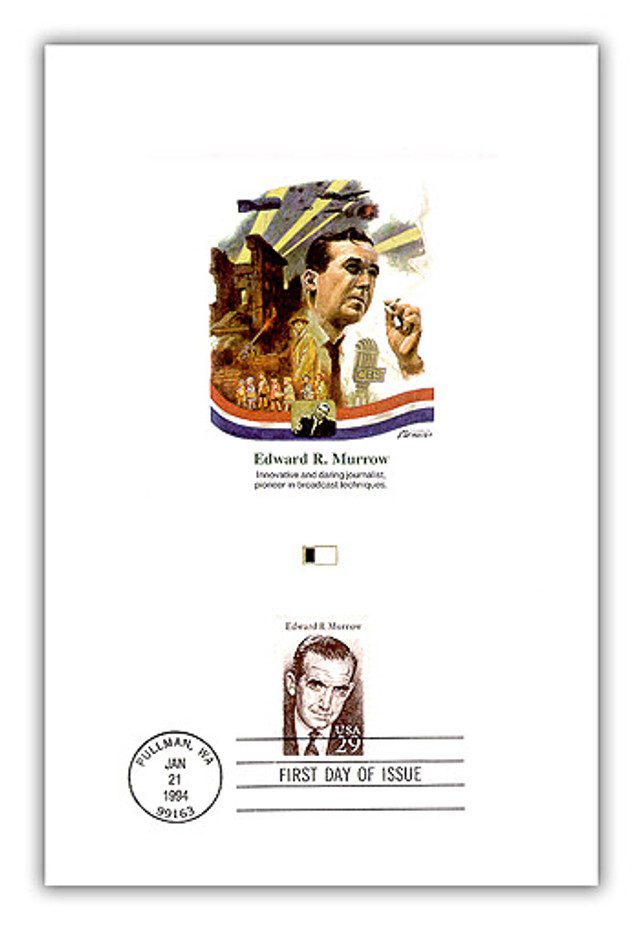
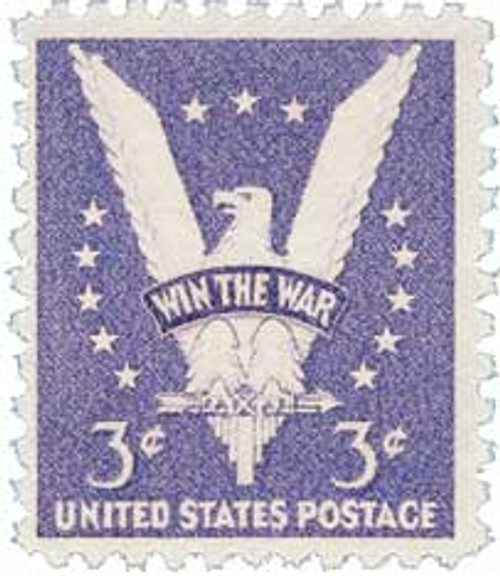
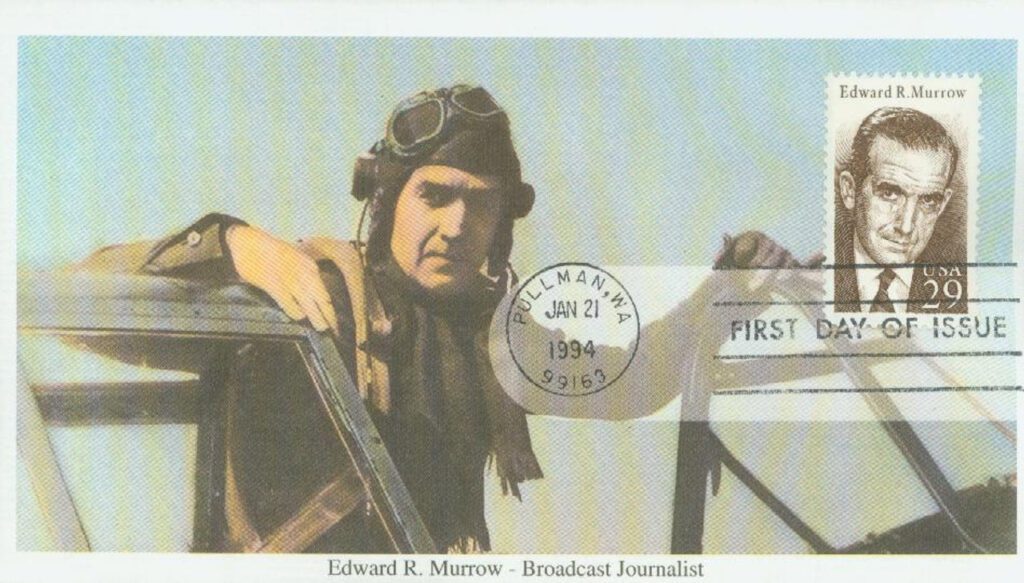
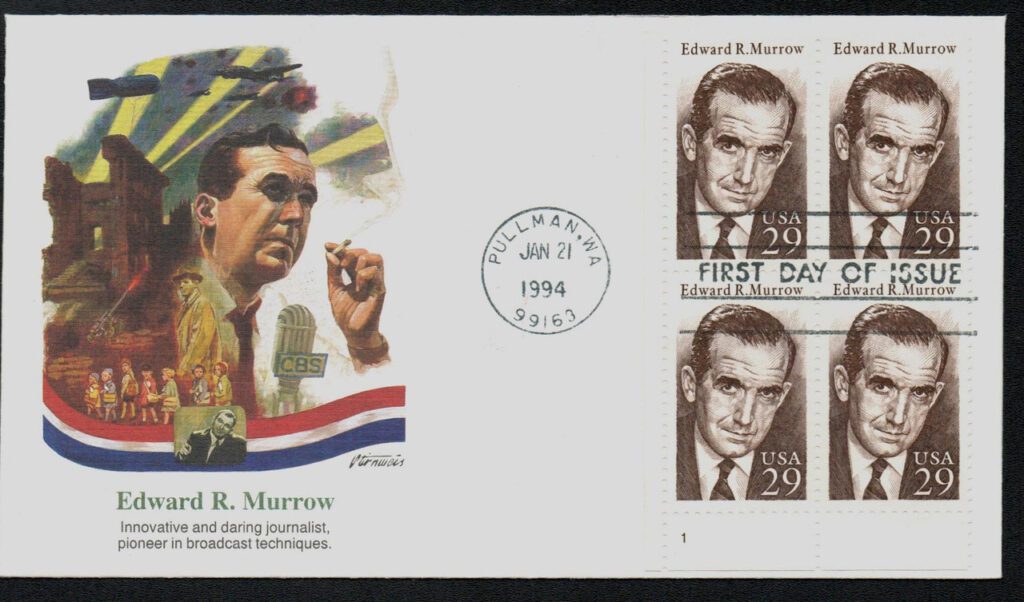
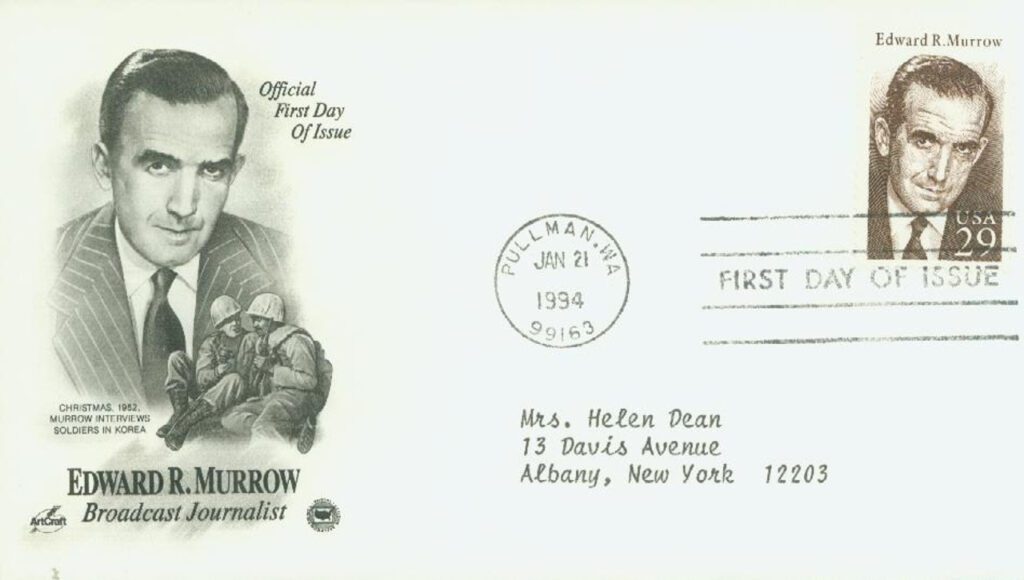

Person to Person was “must see TV” in our house when I was a kid.
From what I have read about Mr Murrow he provided his listeners with accurate reporting based on what he saw and heard. Being at the Buchenwald concentration camp must have been a disturbing sight to see the cruelty that evil will do when good does not stand up and intervene.